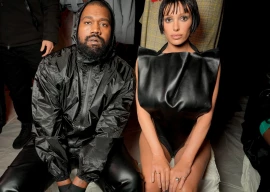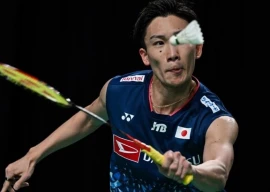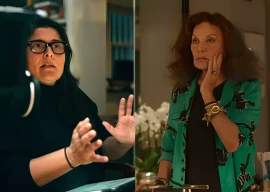
ISLAMABAD:
With widespread concern about the slow recovery in employment during the current economic recession, the media was urged to play its role in improving the situation. International Labour Organization (ILO) Pakistan asked the print and electronic “news disseminators” to influence the commitment of the state to provide equal employment opportunities and decent work for women.
The demand was made at a consultative meeting titled “Portrayal of Women and Work in Media”, which was held on Saturday. It was organised by ILO in collaboration with Uks.
Tasneem Ahmar, Executive Director Uks, Manzoor Khaliq, Senior Programme Officer, and ILO representatives from mainstream media were among the participants.
“It is time that the media takes a stance and uses the tools and forum of communication they have to influence policies on job opportunities and gender equality,” said a speaker. The media was asked to raise awareness on rights, achievements and challenges faced by women at work.
Speaking on the occasion, Tasneem Ahmar said, “Despite many successful interventions in empowering women, numerous issues still exist in all areas of life, ranging from the cultural, political to the economic.”
She added it is unfortunate that in our country women work more then men but are paid less. “Gender discrimination affects girls and women throughout their lifetime and they are often the ones that suffer the most poverty,” she said.
According to Ahmer, there is a massive disconnect between ground realities and the policy makers. “Because of the communication gap, affirmative action and policy reforms are delayed and the efforts of many women who are contributing towards the economy go unrecognised,” she said.
On the occasion Uks presented the findings of a two-month media content analysis of popular print and electronic media. This suggested that media’s representation of reality “normalises” the exclusion of girls and women. “They remain at the periphery of news despite the fact that for several decades now, women have inserted themselves into public spaces that were once exclusively male domains,” said another speaker.
Another “startling” finding is that 46 per cent of stories reinforce gender stereotypes, almost eight times higher than stories that challenge such stereotypes (six per cent).
“The fact remains that both the print and electronic media continue to portray stereotypical images of women,” the speaker added. These include showcasing women as wives and mothers, coy and submissive — meant exclusively for the home and, in certain cases, as another woman’s enemy.
A unanimous recommendation was reached by participants that media should report ethically to fight gender stereotypes.
Published in The Express Tribune, March 13th, 2011.


















































COMMENTS
Comments are moderated and generally will be posted if they are on-topic and not abusive.
For more information, please see our Comments FAQ